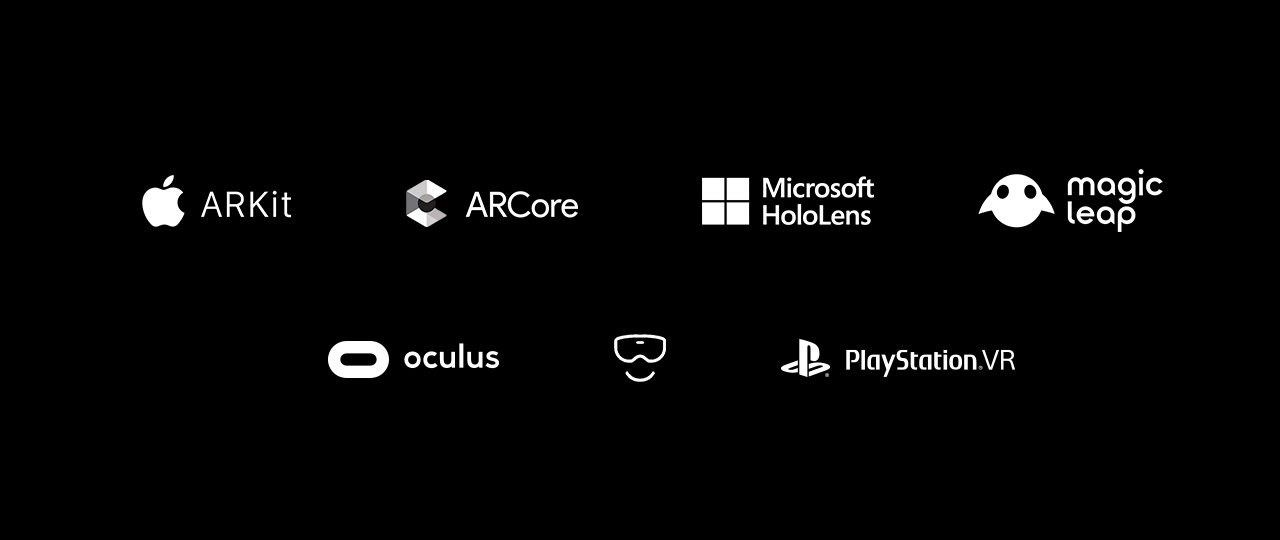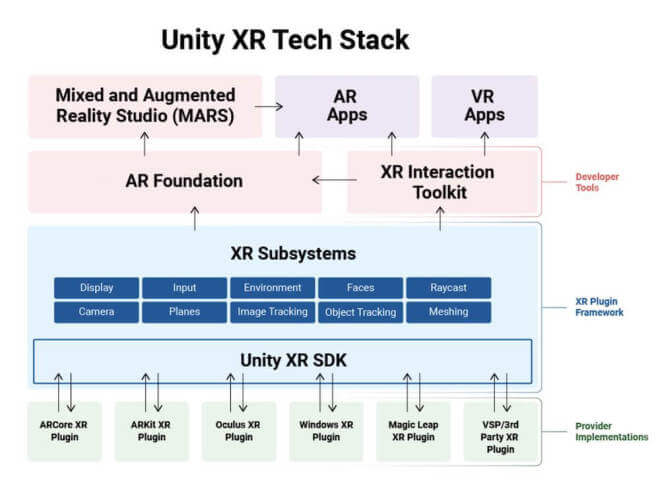Unity XR: Platform Has Ended Support for Gear VR, Daydream and OpenVR
Unity, one of the most widely used XR development platforms, is discontinuing support for Google’s Daydream platform and Samsung Gear VR. The upcoming 2019.3 Unity version will further standardize and optimize support for XR platforms. With the new version, support for smartphone VR headsets will be completely phased out.
After the restructuring, the Unity platform will only support seven XR platforms. Gear VR and Google VR had been discontinued by the end of 2019 anyway. Google VR forms the basis for the Google Cardboard and Google’s Daydream platform.
The new Unity version will support the following seven XR platforms:-
- ARCore
- ARKit
- Magic Leap
- Oculus
- Windows Mixed Reality
- Microsoft HoloLens
- PlayStation VR

According to a Unity blog entry, Unity is currently working with partners on a “deep platform integration, engine improvements and optimizations”
The latest step by Unity to phase out support for the smartphone VR is understandable. Smartphone-based VR is on is way out. Facebook already gave up on Samsung Gear VR in 2019. Over the same period, Google also stopped selling the Daydream View headsets and discontinued further development for its Google VR SDK.

Unity XR is a platform used by developers to build applications for both VR and mixed reality. The Unity platform has long supported the smartphone-based headsets like Google Daydream and Samsung Gear VR. Once both of these projects were abandoned last year and with the Google VR SDK no longer being developed, the Unity step was an expected one.
Following the update to version 2019.3, Unity will now delete support for corresponding plugins for the smartphone-based VR.
Valve is Working on its Own Plugin
With the Unity version 2019.3, the AR platform Vuforia will no longer be supported by Unity. No reason has been provided for the discontinuation of support.
Unity has announced that as part of its shift towards the new plugin framework, Valve will be using its XR SDK to build their own OpenVR Unity XR plugin for 2019.3 and beyond. Valve will share more information on where to access the plugin once this becomes available.
Industry experts will notice that a prominent interface is missing on the list of platforms to be supported: Valve’s OpenVR which is the basis for SteamVR.
In the meantime, there will be built-in support of OpenVR in 2019.3 until the new valve plugin becomes available. Users will also be supported with the critical fixes.
Developers can in the meantime continue developing for the retiring interfaces or the older versions of Unity but they shouldn’t expect full support from Unity if they encounter technical problems with the older versions. To benefit from the latest Unity optimizations and functions, developers will have to switch to the latest Unity version.
While Google VR, Gear VR and OpenVR are no longer supported in the new Unity update, support for these will continue in Unity 2018 LTS.
For more information on the update, verified solutions partners as well as on how to migrate to XR plugins, check out the Unity blog update.
https://virtualrealitytimes.com/2020/01/26/unity-xr-platform-has-ended-support-for-gear-vr-daydream-and-openvr/https://virtualrealitytimes.com/wp-content/uploads/2020/01/Unity-XR-Officially-Supported-Platforms-600x253.jpghttps://virtualrealitytimes.com/wp-content/uploads/2020/01/Unity-XR-Officially-Supported-Platforms-150x90.jpgTechnologyUnity, one of the most widely used XR development platforms, is discontinuing support for Google’s Daydream platform and Samsung Gear VR. The upcoming 2019.3 Unity version will further standardize and optimize support for XR platforms. With the new version, support for smartphone VR headsets will be completely phased out. After...Sam OchanjiSam Ochanji[email protected]EditorVirtual Reality Times - Metaverse & VR
